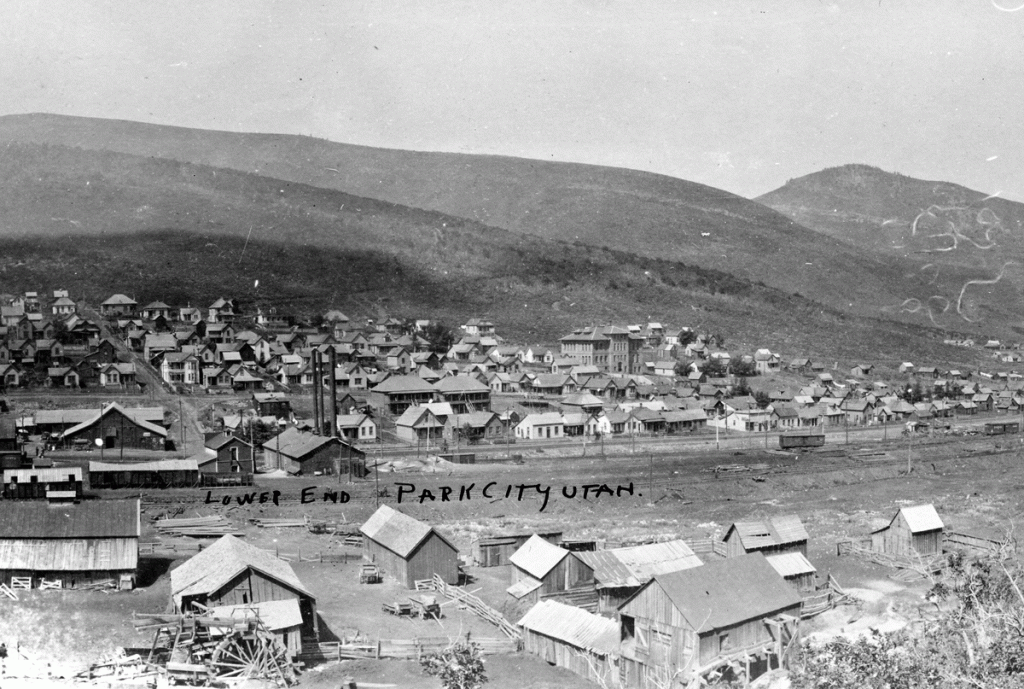This is the eighth article in a series on Prohibition in Park City.
By 1926, Prohibition was in full swing in the country and in Park City. But Park City was not, at least according to the Park Record, doing a good job enforcing the ban on liquor. Booze of some kind could be found at virtually every soft drink parlor and billiard hall, among other places. This lawlessness was leading to rudeness and sometimes other criminal activity, according to the paper. In September 1926 they wrote of “numerous former complaints from women who were insulted on our streets by drunken men.” The Park Record’s pleas were finally answered on September 13, 1926 when Mayor R.W. Macdonald ordered all soft dink parlors and pool halls to be closed.
But more than the Park Record’s constant cries for something to be done about the free-flowing alcohol in town influenced the mayor’s decision. In the evening of September 12, 1926, a Sunday, R.W.’s daughter Francis, while walking home between 9 and 10 p.m., “was forcibly dragged into an automobile by a supposedly drunken wretch, evidently with the intention of kidnapping….”
Francis Macdonald gave her account of the attempted kidnapping as follows:
As I was hurrying past the old Hales stable on Park Avenue, an automobile drew up to the curb, and from this an unknown man jumped and pushed me into the car. The surprise rendered me speechless, so that I was unable to call for help, and in this way hoping to regain my freedom. After asking to be let out of the car, I threatened to jump, but feeling I was disbelieved I carried out my threat, with the automobile going at the rate of 35 miles per hour.
After her leap from the car, Francis mentioned no injury. But the incident apparently freaked out the would-be kidnapper, who turned around and helped Francis back into the car before driving her most of the way home. He let her off on lower Park Avenue near the Corrigan residence and she made her way back home on foot.

Credit: Park City Historical Society & Museum, Himes-Buck Digital Collection
Francis was not able to identify her attacker, saying “because of the fear, I kept my eyes turned from the man, thus being unable to give any clues whatsoever.” She ended her account by hoping to dissuade naysayers who might not believe her by noting she would be willing to tell her account under oath.
Her father downplayed the connection of the kidnapping attempt with his closing the parlors the next day saying that he and the and the city marshal and been planning for two weeks to take action. He admitted the crime against his daughter might have accelerated their timeline a bit. His justification for the closures was that the town “was getting overrun with thieves, bums, and tinhorns, harbored by the so-called soft drink parlors.” He also wanted to shut down the illegal gambling taking place alongside the drinking, citing “all the evils that attend it.”
One parlor owner sent an anonymous letter to the Mayor decrying the closures. In response, Mayor Macdonald called the man a “crumb” and “a common liar.” All in all, he spent 56 words complaining of this anonymous proprietor, but zero words expressing relief his daughter was okay and zero words in anger at or vilifying the man who attempted to kidnap her. No mention was made of a police investigation into the matter and no further reports of the incident appeared in the newspaper.
The soft drink parlors were allowed to open the following week, to which the Park Record asked for another closure and wrote “we suppose law violation will go on until a kidnapping, or murder, or riot occurs…. It clearly demonstrated what the Mayor can do when determined to do it.” This summer the Park City Museum is giving historic Main Street walking tours every Monday through Friday at 2 p.m. each day. Call the front desk at 435-649-7457 or see them in person to make a reservation. The Museum is also giving tours of the Glenwood Cemetery every Tuesday and Thursday at 10:30 a.m. both days. Sign up at parkcityhistory.org.
Sources:
“So-Called ‘Soft Drink Parlors’ Locked Up.” Park Record. September 17, 1926.
“Stroller Notices.” Park Record. September 24, 1926.
“Soft Drink Parlors Opened by Council.” Park Record, September 24, 1926.